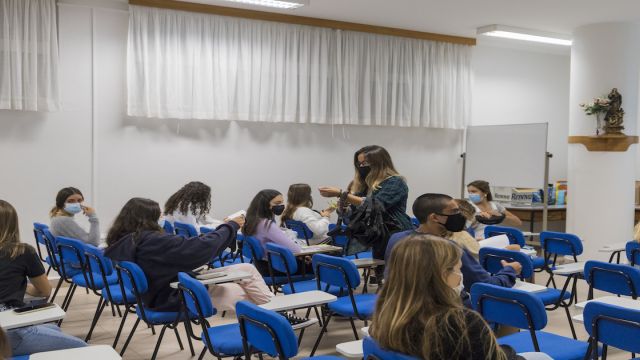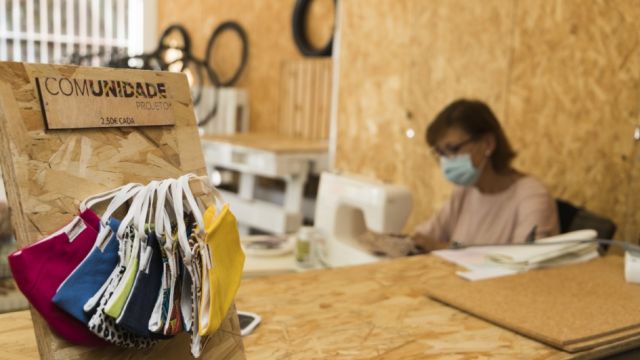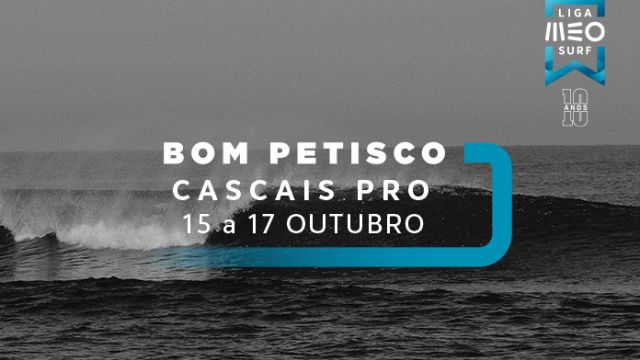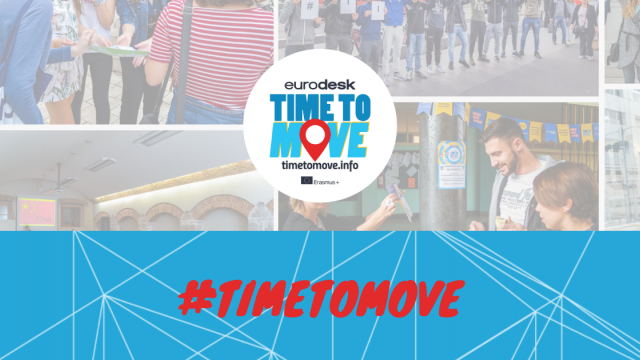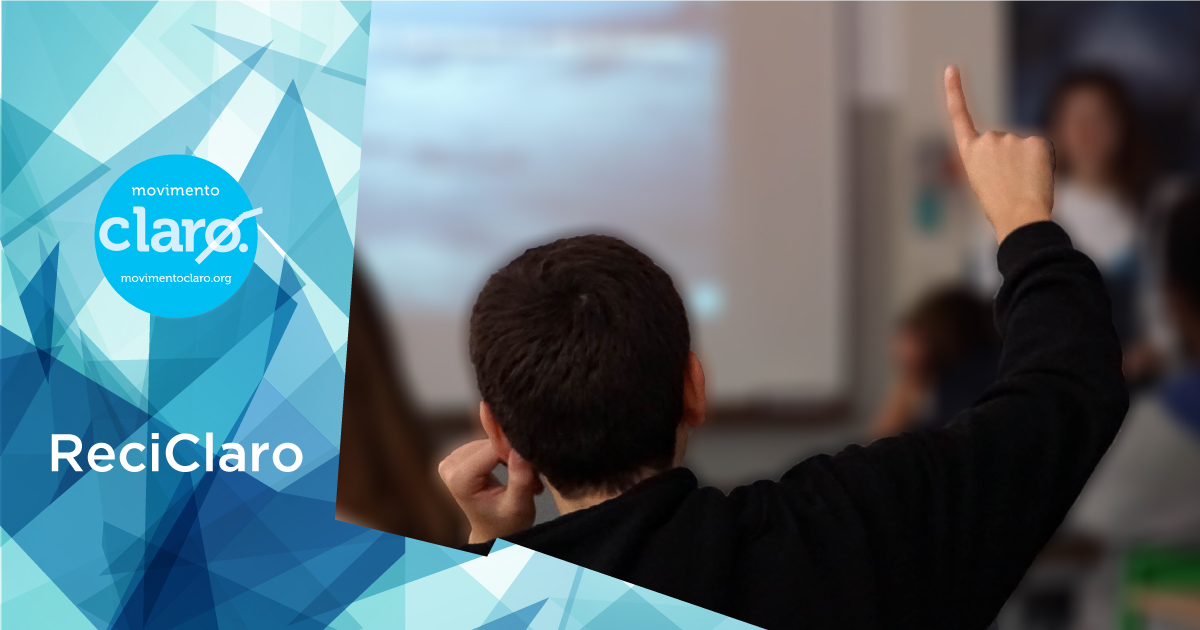
ReciClaro is the new project of Claro Movement in partnership with Cascais Jovem that will teach you everything you need to know to end the irresponsible use of plastic.
Let's start by realizing the basics:
What is plastic?
The first artificial plastic came in the nineteenth century and has developed very fast to the present day, the amount of plastic produced since 1950 reached 9.2 billion tons.
Plastic comes from resins derived from petroleum and belongs to the group of polymers (very large molecules, with special and varied characteristics).
The word plastic has Greek origin and means that which can be shaped. In addition, an important feature of plastic is to maintain its shape after molding.
But then what is the problem with plastic?
Every year between 5 and 13 million tonnes of waste enters the oceans of which 80% is plastic, this material takes a long time to decompose and therefore becomes quite polluting.
It is estimated that every year about 1 million seabirds and numerous fish are affected by plastic pollution, not only because they are trapped but also because they confuse plastic with food.
Did you know that there are 5 plastic islands scattered across our oceans?
The largest of them all, is in the Pacific Ocean and is 17x the size of Portugal, weighs approximately 80,000 tons!
There are several ways for plastic to reach the Oceans:
• People who leave plastic when they go to the beach
• When it rains, the trash is dragged into the rivers and brought to the Oceans
• Garbage that flies with the landfill wind
• Plastic shot or lost at sea by ships. Boats that lose or throw away fishing nets
• Toiletries, sanitary ware and even toys for children that go to the toilet down.
• Micro cosmetics plastics that drain from washbasins and toilets
• Small pieces of plastic fabric that come out of the clothes every time they are washed. They end up in dirty water and eventually are taken to the oceans.
Do you know the importance of Oceans to the life of the Planet?
• Main climate regulator
• Produce between 50 and 70% of the oxygen we breathe
• They are the habitat and food source of many living things
How can we help?
The rule of R's
• Rethinking - It's time to rethink and question our habits, make informed and more sustainable decisions. Will not there be a more sustainable alternative?
• Decline - Have you noticed the amount of plastic used to wrap
food in a supermarket? Always try to buy in bulk.
• Reduce- Look at the labels and understand the codes that have polyethylene (PE), polypropylene (PP), polyethylene terephthalate (PET), polymethylmethacrylate (PMMA). These big names mean they have plastic and you should not use them or buy them.
• Reuse - Be creative and invent new things to give your plastic a new life.
• Recycle - You already know or should know.
Did you know that?
One million plastic bottles are purchased per minute worldwide. Most are not recycled and end up in landfills and oceans.
Only 5% of plastics are properly recycled, 40% end up in landfills, and 1/3 pollute ecosystems, 40% of all plastic that ends up in landfills is one-time use!
Now that you know the main you can already help CHANGE OUR PLANET !!
Stay tuned to our social networks to learn more and follow this project!










